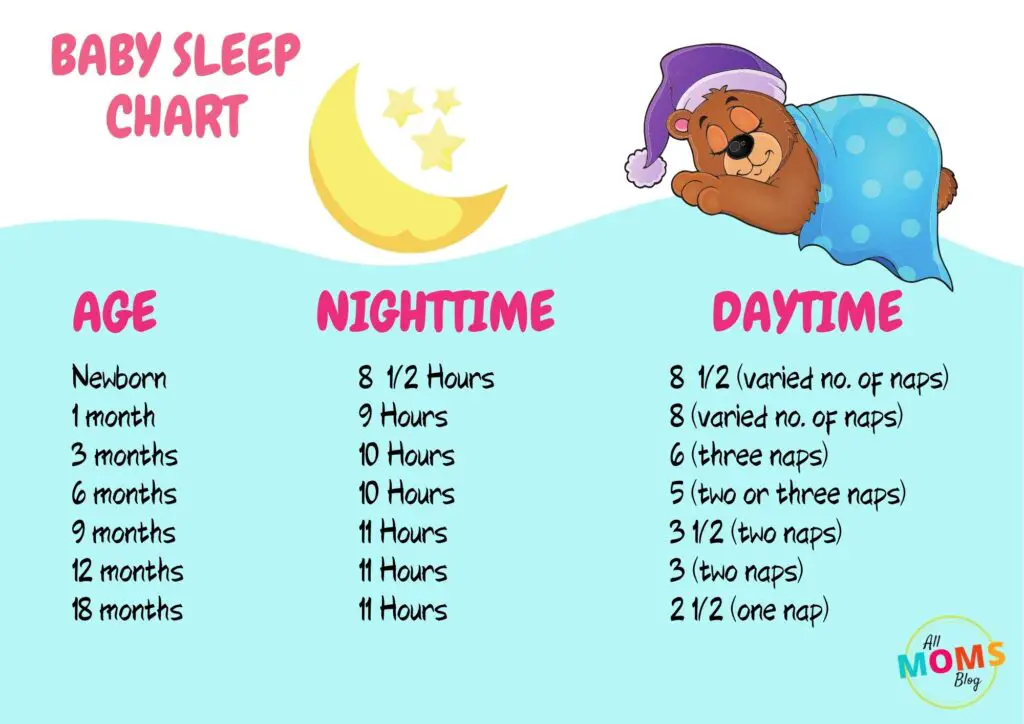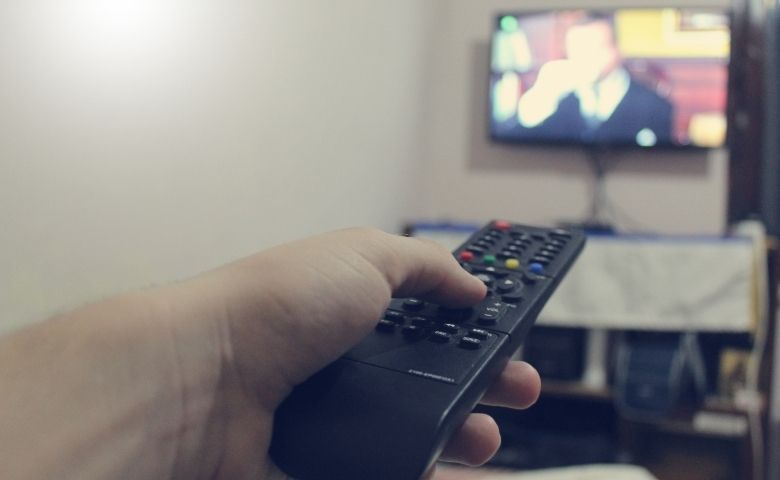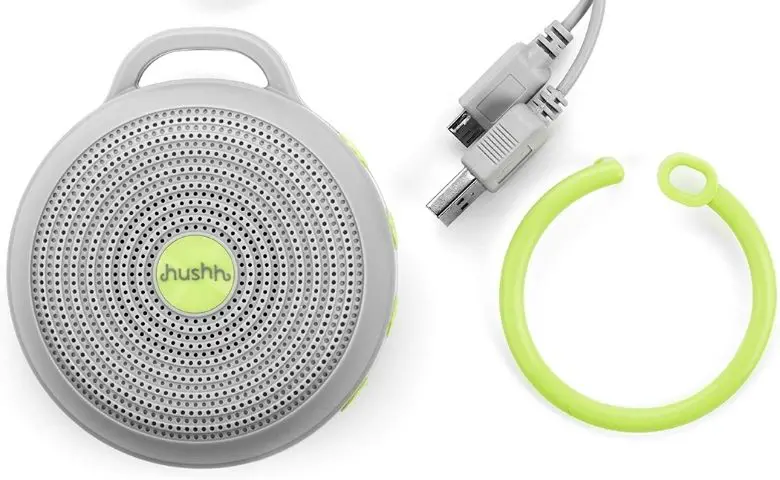8 Best Baby Sleep Tips And Tricks That Really Work For Mamas
How can you help your baby sleep better? The answer to this question is a complex one.
Putting a baby to sleep a mother’s nightmare!
Being a mother is tough. There’s the seemingly endless mess, meals that need to be cooked for your family, and a growing list of tasks you have at work.

But it’s especially difficult when new mothers who haven’t yet gotten used to the nonstop demands of being a mommy do too much themselves before they find their groove as an adult parent – like trying sleep schedules without following any baby sleep tips first or over-schedule themselves with other things because this “isn’t just about me anymore“.
So to ease your journey here are some helpful steps all moms can take so we’re focusing on one aspect today: baby sleep tips that really work!
Why do babies need sleep?
Baby’s good health is dependent on his good night’s sleep and well-rested daily periodical naps.
In a recent study, it was found that babies’ sleep is crucial to their cognitive and physical development. When they’re sleeping, this isn’t just time for them to recharge energy but also engage in brain activity by absorbing everything they’ve learned during the day.
One Research shows that infants who get less than 12 hours of sleep each day are twice as likely to be obese at 3 years old, according to a study published in the journal Sleep. Researchers examined 915 children aged from 7 months up until they were 2 1/2 and found more frequent nighttime waking correlated with increased body mass index (BMI).
Having proper nap time will help the baby stay calm and happy and not cranky all day. It is best to develop a routine for a better sleep pattern.
How long should babies sleep?
The babies’ sleep schedule depends on their age. Newborns sleep from 14-17 hours a day. But as you might expect, newborns sleep in short bursts, waking up every 1 to 2 hours to breastfeed or 3 hours between feeds at the bottle.
For a baby between 6-12 months, they should sleep for about 2-5 hours in the day and 9 to 11 hours at night.
When your baby reaches their first year old milestone, they would need 12 – 14 hours of sleep in a 24-hour period including one or two naptimes during the day.
Looks confusing? Here’s a visual chart I created for you to help better understand how much sleep does your baby need.

How to create a safe environment for babies to sleep?
Did you know in us around 3500 infants die every year as a result of sleep-related deaths?
The best way to create safe environment for your baby. The American Academy of Pediatrics (AAP) recommends the following to ensure safe sleep:
- Babies should sleep on their backs
- The surface should be firm and not soft or loose
- Keep a clear space between them and furniture, as well as other things like pillows and blankets to avoid SIDS
- It is also important for babies not to share the same bed with adults until they are much older
- Room temperature should be neither too hot nor too cold, the comfier the temperature more soundly the baby will sleep.
What happens if the babies don’t get enough sleep?
If there is no proper sleep routine for a baby or if he isn’t getting proper sleep, the baby will be cranky, sleepless and have a hard time concentrating.
here are a few signs to know if your baby is sleep-deprived:
- Sleepy behavior during the day (can’t stay awake, difficult to wake up)
- Excessive crying or fussiness at night
- Refusal of bedtime rituals such as a bath or bottle feeding.
- Rubbing their eyes or looking at objects that light up
- Yawning repeatedly
- Pulling ears
- Getting more clingy
What sleep tips work? My 8 baby sleep tips and tricks
Now that we’ve covered the importance of sleep and how much sleep your baby should be getting, let’s get to the good stuff: ways to help babies sleep well.
If you want to train your baby for some consistent sleep patterns and want to help him with his sleep problems, then we are here to help you with the best kind of course that I would recommend for your newborn, which is Baby Sleep Miracle.
It is an all-in-one solution to your baby’s sleep difficulties.
Now, I have gathered a list of tried-and-true tips to offer you peace of mind when it comes to finding snooze success for your little one.
Establishing a bedtime routine and sticking to it

Believe me, setting up a bed routine is as difficult as anything. I had to establish a strict sleep routine with my two boys.
Starting with a solid, consistent bedtime routine is the first step to teaching your baby predictability. The more your baby knows what’s coming next, the more likely he or she will follow through at an earlier time.
If I stayed at my parent’s place, I had to make sure that this daily and nighttime routine was strictly observed no matter what. There were many times when my parents would talk me into being lenient with my babies sleep scheduled sleep time, but strictly observing the routine has paid off very well.
Give your baby a warm bath

Before taking the baby to bed, start off with bath time, and then move on from there (e.g., brush teeth, read books, sing songs). The more consistent this becomes for both you and your baby, the better he or she will sleep. And what’s the best time to give a baby a bedtime bath? One to two hours before bedtime.
Consider using a bedtime baby wash. It may be the perfect product for your baby’s skincare routine, and it contains ingredients that soothe, refresh and help them sleep well.
Some researchers also state that giving the baby a pacifier is harmless.
Schedule their nap time

This baby sleep tip is crucial for your baby’s development. Naptime helps them learn how to sleep on their own and can reduce the risk of SIDS (Sudden Infant Death Syndrome).
But you need to do some adjusting. You should be able to get your baby on a nap schedule that works for them and the family. This is going to mean less napping during the day, but it will give them more rest as they grow up and start sleeping through the night better.
Here is a typical nap time schedule:
- 0-12 weeks: naps every hour or so, usually 20 minutes long; a total of about 15 hours a day (not counting any nighttime sleeping)
- 13-24 weeks: two naps with an afternoon one being more predictable than the morning one. ; a total of about 14 hours a day. ( not counting any nighttime sleeping)
- 25+weeks: One to three short daytime naps lasting 12 to 30 minutes each afternoon, and fewer in the mornings; a Total of 11 to 13 hours per day. (Not including night-time sleeping).
This is just a general guideline! Babies are different and their needs will change as they grow.
Allowing the baby to enjoy a day full of fun play and games with gaps of small naps in between helps the baby get a full night of comfortable sleep.
Limit diaper changes and be stealthy about feeding

Diaper changes at night can be a common cause of interrupted sleep. One idea for minimizing the number of diaper changes is to use cloth diapers or reuse disposable ones so that you don’t need to change your baby’s outfit in addition to their diaper (or using disposables, just changing over their bottoms).
Another strategy would be to put on pajamas with easy-access zippers and avoid clothes with buttons altogether.
Make sure that your baby doesn’t get a rash by applying a generous amount of diaper rash cream to protect the baby’s bottom in case of nighttime wetting.
You might also set up an area near the bed where you keep extra clothing and supplies like wipes close by so it feels less daunting if your child needs something urgently during the middle of the night.
So, the main point is if in case the baby wakes up during the night the baby should not be too much stimulated, and fed, and changed quietly without too much fuss so that his drowsiness doesn’t diminish, and he finds it is easy to return to sleep.
To avoid waking up your baby, experts recommend using a wipe warmer or warm water in place of cold soap and water when washing them down. This will help baby sleep through the night.
Create a sleeping environment

Babies need darkness in order to sleep well. Remember that their eyes are not fully developed and they do not have the ability to differentiate between light and dark colors yet, so it is best to keep them away from any bright lights for at least half an hour before bedtime.
This will help them become more tired and start sleeping faster, so they will need less rocking or walking.
I have always made sure after a good bath and oral hygiene, I make sure we are in a silent environment before turning the lights off and taking them to bed.
It was not easy as is being written here, it was consistent hard work that I had to do, knowing a minor occasional negligence would take me days back to establish the same routine once again.
Finally, at three and half years my elder one has begun to look forward to sleep time and its rituals.
So the recipe to keep the baby sleeping soundly throughout the night includes certain practices like either a massage, providing a quiet comfortable environment to the baby or an older toddler, so they can dose off easily throughout the night.
It must be noted that these procedures prove to be useful only if you apply them through the hard work of being consistent.
Make sure your baby is not hungry

A newborn’s stomach is small and needs to grow enough to be able to hold a substantial amount of food. You may want take note of the fact that, when your baby develops this capacity, he or she will be able to sleep soundly all through the night without waking up hungry certain intervals.
Feed your baby before bedtime and in the middle of the night.
Feeding at regular intervals will help your baby fall asleep faster. If you’re breastfeeding, try to nurse for around 15 minutes or more on each side (that is 30 minutes total) every time he wakes up during the night.
However, some babies will cry before bedtime not for a reason but out of habit. This kind of crying can sometimes last up to four months after birth and falls under the category “colic” which may require treatment from an infant specialist.
Babies who have colic often need extra attention in order to settle down. Try rocking them or lightly bouncing on a shaggy rug while patting their backside until they fall asleep. Here are some tips to calm a fussy baby.
Put all your gadgets away before bedtime

Sleep experts agree that tech is a big part of the problem. The blue light emitted from smartphones, tablets and other devices can disrupt your baby’s natural sleep-wake cycle by suppressing melatonin production (which helps regulate their cycles).
Parents are encouraged to put away their devices whether it’s the TV, a laptop, or a tablet, they should be turned off at least 30 minutes before bedtime. The light from screens suppresses the release of melatonin, which makes falling asleep more difficult.
Furthermore, experts recommend keeping your little one away from any screen before age two—whether it’s a TV or tablet. Studies show that starting early and using them every day can lead to sleep problems through childhood and even as an adult.
This means no watching television for children under two years old; instead encourage reading time at this age!
Related article: The 26 Best Books For Preschoolers In 2021
White Noise Machine

The best way to help soothe your baby and get them off to sleep is by using a white noise machine. The white noise machines have been proven time and time again to work wonders in helping babies get off to sleep!
There are many different types of sounds that machines can produce. The calming sound of streams, the wind in the trees, the chirping of birds, and even machinery can cause babies to sleep deeply. The reason behind this seems to be that white noise from any environmental audio is very soothing for infants.
You can also use an app on your phone or tablet as well for some extra convenience! Also, if you are looking for something to keep your fussy baby asleep for a long time, this white noise machine is something that you should invest in.
Final takeaway
Sleep is essential for our babies—yet not easy to come by. But with the right combination of patience, persistence, and our baby sleep tips, we hope you find it easier put your little one to bed so they can recharge and stay healthy.
This blog post has been a long one, and we hope you’ve found it helpful. Remember to always consult your pediatrician before doing anything drastic with your baby’s sleep routine, as there are many factors that could be affecting their quality of sleep.
How do you manage to put your baby to sleep? Let me know in the comments below!
Related Articles:
How To Make Your Child Listen Without Yelling
11 Effective Tips To Reverse Defiance In Kids
How To Bridge Generation Gap As Parents
9 Incredible Habits For Raising Smart Kids
How To Get Your Toddler To Eat Healthy Meals
Don’t Forget To Pin It For Later!

8 Best Baby Sleep Tips And Tricks That Really Work For Mamas
Samia Bibi
Hi! I'm Samia. I am a mother of two gorgeous kids and a housewife. By profession, I am a speech and language therapist/ pathologist living in Pakistan. I am also a freelancer and a content writer for the past two years. Writing has always been my passion since childhood but now it has also become a profession I am proud of.

Woah, that’s so much knowledge and so many option. We’ve observed Mia is having some trouble sleeping lately (she’s 20 months now) and I’ve decided to buy an ebook about toddler sleep – https://www.parental-love.com/shop/toddler-sleep-training – we find it really helpful these days.
Hi Adrian! Glad you found the post helpful and thanks for the recommendation. I will surely take a look at this book.